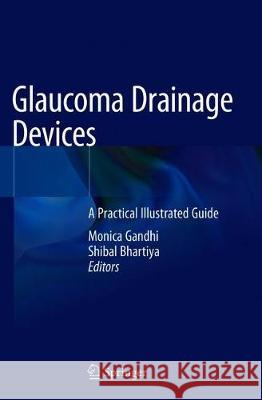Glaucoma Drainage Devices: A Practical Illustrated Guide » książka
topmenu
Glaucoma Drainage Devices: A Practical Illustrated Guide
ISBN-13: 9789811357725 / Angielski / Twarda / 2019 / 173 str.
Kategorie BISAC:
Wydawca:
Springer
Język:
Angielski
ISBN-13:
9789811357725
Rok wydania:
2019
Wydanie:
2019
Ilość stron:
173
Waga:
0.72 kg
Wymiary:
25.4 x 17.8
Oprawa:
Twarda
Wolumenów:
01
Dodatkowe informacje:
Wydanie ilustrowane











